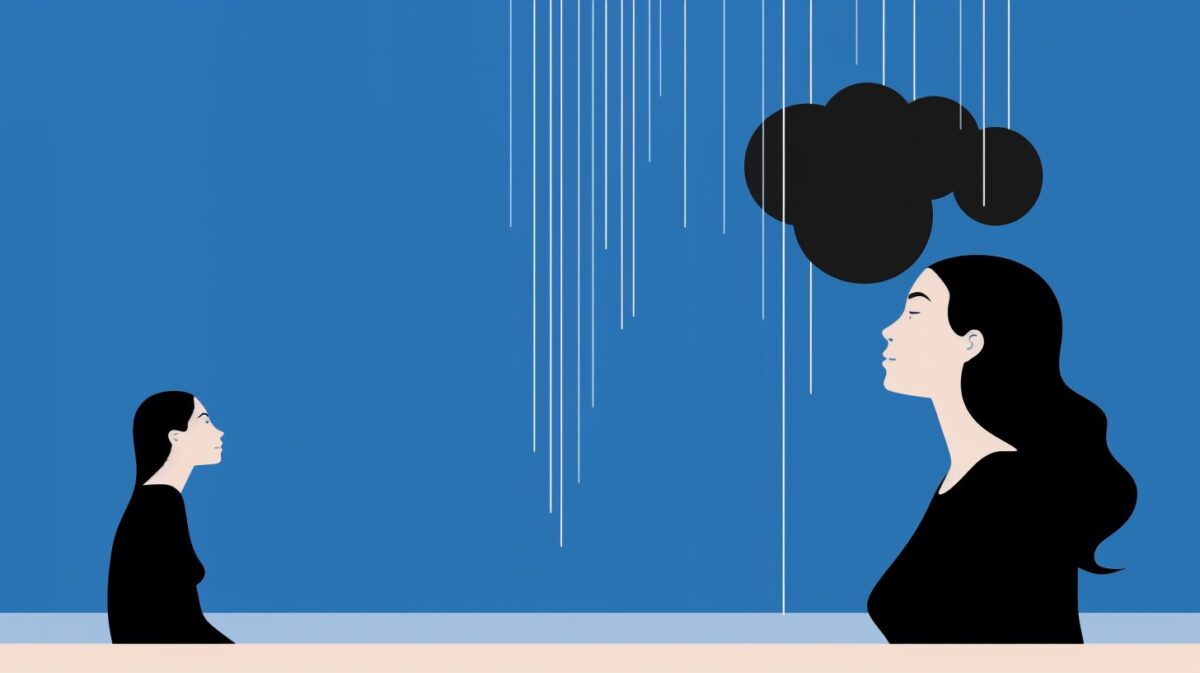Our ‘Sessions‘ series explores sessions at the Clinical Psychologist’s Office
Session 3 at the Clinical Psychologist’s Office
The ambiance remains warm and inviting. Sue looks a bit tense, but there’s a determination in her eyes. She’s clearly been doing some introspective work between sessions.
Dr. Greene: Good to see you again, Sue. How has your week been?
Sue: Hi, Dr. Greene. It’s been challenging, especially after our last session. I’ve been trying to pinpoint some of those negative thoughts, and one thing keeps popping up: this constant fear of what might happen.
Dr. Greene: That’s a great observation, Sue. Uncertainty can be a significant source of distress for many, especially those with OCD. Let’s delve into that today. Can you share a specific situation where this fear of uncertainty was particularly strong?
Sue: Sure. Earlier this week, I was offered a new project at work. Instead of feeling excited, all I could think was, “What if I mess it up? What if I can’t handle it? What if this… What if that…” The uncertainties just piled up, and it paralyzed me.
Dr. Greene: Thanks for sharing that. It sounds like the uncertainty triggered a cascade of negative thoughts. These “what if” scenarios are examples of maladaptive beliefs. They’re irrational thought patterns that can lead to distress and can influence our behavior in unhelpful ways.
Sue: Maladaptive beliefs?
Dr. Greene: Yes. These are deeply held, often automatic thoughts that aren’t necessarily based on reality. They can be overly negative, generalized, or black-and-white in nature. In your case, the fear of uncertainty seems to be driving these maladaptive beliefs.
Sue: So, how do I deal with them?
Dr. Greene: The first step is recognition, and you’ve already started doing that. Next, we’ll challenge these beliefs. For instance, when you think, “What if I mess it up?” we can ask: “Is there any evidence from my past performance to support this thought? What’s the worst that can happen, and how likely is it? Can I cope if it does happen?” By breaking down these thoughts and examining them, we can start to see them for what they are: often exaggerated and not entirely based on fact.
Sue: It sounds straightforward when you put it like that, but in the heat of the moment, those thoughts feel so real.
Dr. Greene: Absolutely, and that’s the power of maladaptive beliefs. They can feel very real and overwhelming. But with practice, as you become more adept at challenging these thoughts, you’ll find that their hold over you starts to weaken.
Sue: It’s a lot to think about. But I’m committed to working on this. I don’t want these fears and uncertainties to control my life.
Dr. Greene: That’s the spirit, Sue. Remember, the path to change often involves facing some challenging truths about ourselves, but with dedication and the right tools, you can reshape these thought patterns. We’re in this together.
The session depicted above is a fictional representation and does not depict real individuals or actual events. It is constructed based on general principles and experiences within the field of clinical psychology but is not representative of any specific real-life scenario or therapeutic relationship. Anyone seeking psychological advice or therapy should consult with a licensed professional who can provide guidance tailored to their unique situation.
The old way | ocd.app | |
Cost | $$$ – Therapist costs | $ – Save money |
Evidence | No published evidence | 13 published studies |
Time burden | Long term | 3-4 minutes of your day |
Results | Takes months | 91% see first results within a week |
Privacy | Privacy concerns | Anonymous and private |
User feedback | Mixed | 4.8 / 5.0 (2,635 reviews) |
